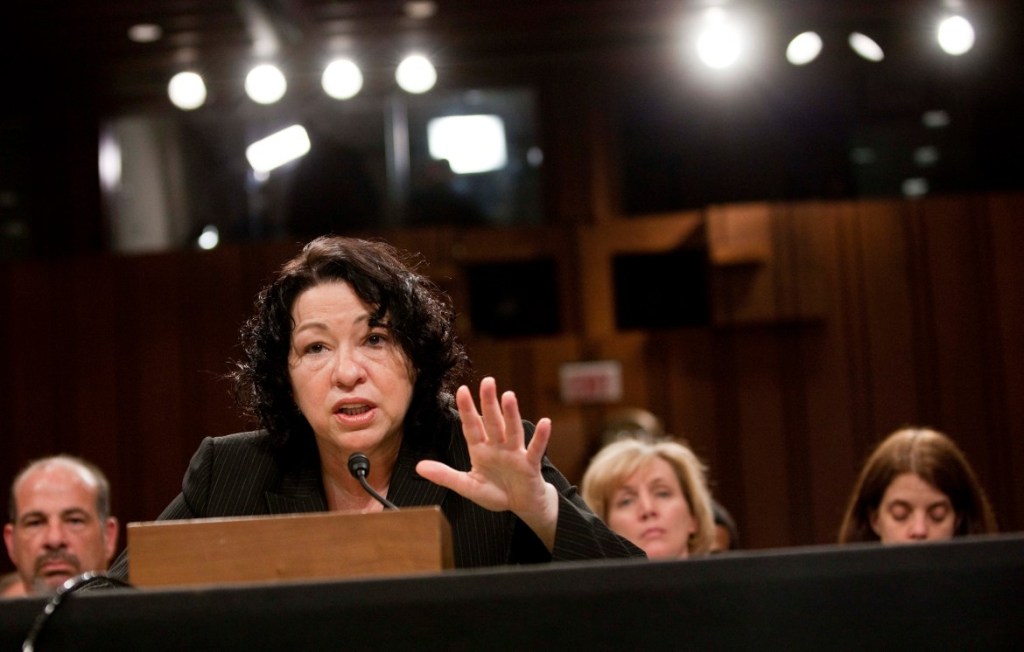
During Reconstruction the federal government passed a series of constitutional amendments aimed to extend rights and citizenship to emancipated slaves—the 13th Amendment (1865) outlawed slavery, the 14th Amendment (1868) extended citizenship to all persons born in the United States and reaffirmed equal protection of the laws to all citizens, and the 15th Amendment (1870) protected the suffrage of citizens regardless of race.
Notwithstanding the above, many of these accomplishments were reversed during the years after Reconstruction. Many states adopted restrictive ‘Jim Crow’ laws that enforced segregation based on race and imposed measures aimed at keeping African Americans from voting booths.
According to a September 2, 2020 article by Dexter Filkins in The New Yorker “From 1888 to 1968, not a single Black person was elected to the Florida Legislature. The State’s constitution imposed an additional stricture: felons were banned for life from voting.”
Many states imposed waiting periods but Florida maintained a lifetime ban. According to Mr. Filkins, “Black people are arrested at disproportionate rates for felonies, especially drug-related ones; as recently as 2016, the ban disenfranchised one of every five black adults in the state.”
Desmond Meade, himself a former felon who went on to earn a law degree, and along with his allies, collected eight hundred thousand signatures to put the question of abolishing voting prohibition except for the most violent felons on the Florida statewide ballot in 2018 as Amendment Four.

In 2018, nearly two-thirds of the Florida electorate (more than one million) voted to amend the state constitution and allow felons to vote. The amendment applied to felons who had completed their parole or probation periods, and it did not apply to those convicted of murder or sexual offenses. This represented the largest act of disenfranchisement since 1971, when the Twenty-sixth amendment lowered the voting age to eighteen.
The current governor Ron DeSantis also supported the Amendment.
Its passage meant that some 1.4 million felons in the state would be eligible to vote.

But six months after the Amendment Four passed, the Republican led legislature approved a law that required ex-felons to pay all fines, restitution and fees imposed at their sentencing before they could vote.
Once again, according to Mr. Filkins, “The law may affect as many as seven hundred and seventy thousand Florida residents… In many cases the totals came to thousands of dollars…the legislation gutted Amendment Four.”
In signing the law, Governor DeSantis said he was supporting the language of the Amendment. “The amendment does not apply to a felon who has failed to complete all the terms of his sentence,” he said.
Seventeen former felons sued DeSantis claiming the law amounted to a poll tax, which Florida repealed in 1937.
According to NPR, “In a second phase of the litigation, Judge Robert Hinkle held an eight-day trial [in May] and found that the ‘overwhelming majority’ of felons would be too poor to pay the amounts owed, if they could find out what they owed. Hinkle said that the pay-to-play law had created ‘an administrative nightmare'”…

But then early in July, the 11th Circuit Court of Appeals, without explanation and two months after the court of appeals decision, stopped Hinkle’s order from going into effect. The appeals court, which now includes six Trump appointees, set a hearing in the case for Aug. 18, the day of the state primary.
The felons then appealed to the Supreme Court, and on Thursday, July 17, the court, refused to lift the 11th Circuit’s temporary order. The estimated 85,000 who already registered could be prosecuted if they vote and it turns out they have not paid the fees or fines owed.
Dissenting from the Supreme Court’s refusal to intervene in the case on Thursday were three of the court’s liberal justices: Sonia Sotomayor, Ruth Bader Ginsburg and Elena Kagan.
Writing for the three, Sotomayor said, “is that the Eleventh Circuit has created the very ‘confusion’ and voter chill’ that the Supreme Court counseled against in 2006 when it told the lower courts not to make sudden changes in rules close to an election.

“The real issue now is whether we can get any relief for these people before the November election,” said Paul Smith of the Campaign Legal Center, which has represented the felons in their court battle.
But as it is now, any convicted felon must first pay their fines if they want to vote, meaning most of them will most likely not vote in the November election. And of those felons, as Mr. Filkins wrote: “Black people are arrested at disproportionate rates for felonies…”
Sources: September 2, 2020 article by Dexter Filkins in The New Yorker. / Wikipedia, the free encyclopedia. / NPR
13th Amendment XIII
Section 1. Neither slavery nor involuntary servitude, except as a punishment for crime whereof the party shall have been duly convicted, shall exist within the United States, or any place subject to their jurisdiction.
Section 2. Congress shall have power to enforce this article by appropriate legislation.
People do not know and understand the Fourteenth Amenment.
14th Amendment Citizenship: Citizen = SLAVE
Prior to the alleged ratification of the 14th Amendment, there was no legal definition of a “citizen of the United States”, as everyone had primary citizenship in one of the several states. The Constitution referred to the sovereign state citizen, and no one else. Those who went to Washington, D.C. or outside the several states were commonly called “citizens of the United States.” In the Constitution for the United States, the term was used to identify state citizens who were eligible under the suffrage laws to hold office, and they were required under the Constitution to have primary allegiance to one of the several states.
LikeLike